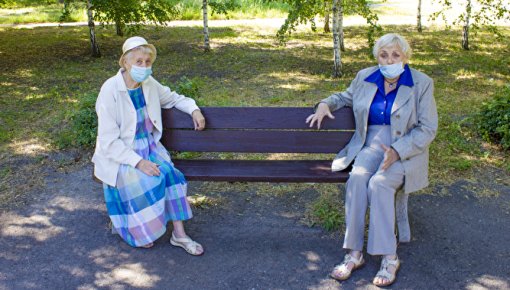It usually takes about three days for symptoms to develop after being infected. If you're infected, you can already pass the virus on to others about 1 to 2 days before your own symptoms start. The risk of infecting others is greatest about 3 to 6 days after your symptoms start. After that, you're less infectious because your immune system has started to kill the viruses, so there are less of them. But people may be infectious for longer if they develop a severe COVID-19 infection or have a weakened immune system.
Some people with a coronavirus infection don’t develop any symptoms at all, so they don’t notice that they have the disease. Others develop cold-like symptoms that usually clear up again within a few weeks.
COVID-19 infections are now only rarely severe. In severe cases, the viruses also multiply in the lungs. Then it becomes harder to breathe, and the concentration of oxygen in the blood drops drastically. The immune system’s reaction can cause pneumonia. In the worst case, that may lead to respiratory (lung) failure. If there is no longer enough oxygen in the blood, artificial respiration (help with breathing) might be needed.
The infection can also spread to other organs like the heart, nervous system or kidneys. In some people who have a severe infection, there's a strong inflammation response that can cause several organs to fail. COVID-19 can also increase the risk of thrombosis and stroke.
Severe infections often develop suddenly: The symptoms may be mild over the first few days, and then suddenly get a lot worse within a few hours.
COVID-19 is almost always mild in children. They generally don’t have any symptoms, or just cold-like symptoms. Children only rarely need intensive care treatment. In the first two years of the pandemic, some children developed a condition known as PIMS (pediatric inflammatory multisystem syndrome) several weeks after a COVID-19 infection. In PIMS, the immune system overreacts and causes severe inflammations in the blood vessels and various organs. The symptoms may include a continuously high fever, conjunctivitis, vomiting and a skin rash. PIMS is a serious disease, but can usually be treated well. COVID-19 hardly ever causes PIMS in Germany nowadays.
Pregnant women only rarely develop severe COVID-19. But if they do, it can increase the risk of certain childbirth complications – like a premature birth, for instance. Mothers are unlikely to pass the virus on to their unborn child before the birth. That's more likely to happen during and after the birth. But children of mothers with a mild COVID-19 infection are born just as healthy as other children are.

